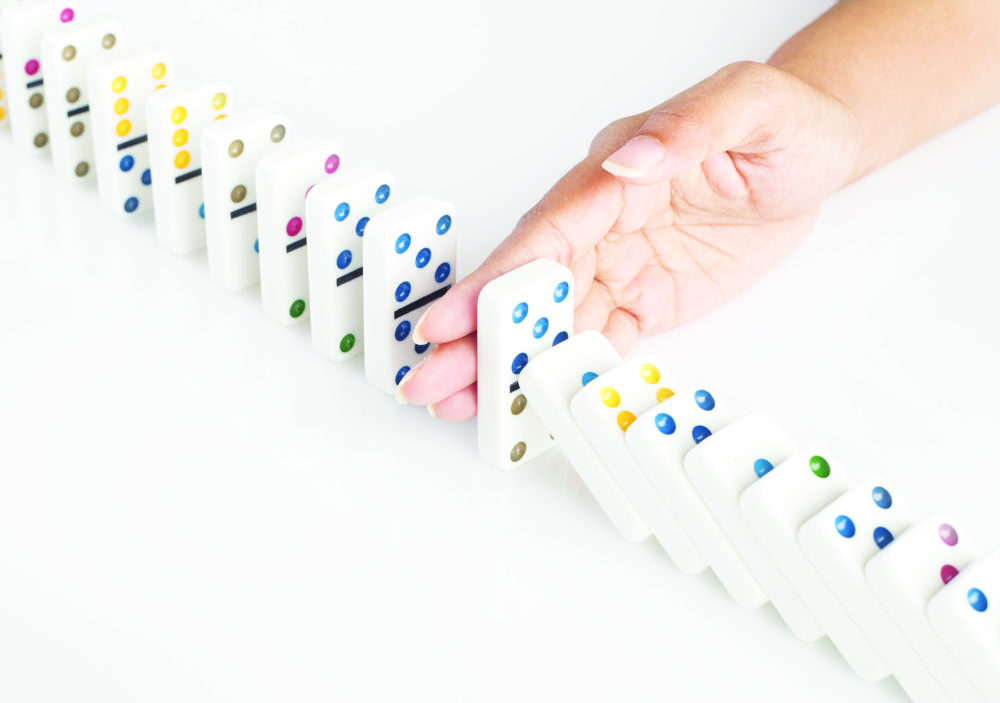
Accidents Waiting to Happen
5 Ways to Protect Yourself – and Your Loved Ones – from Potentially Dangerous Falls
By Daphne S. Withrow, Esq., RN
With its aging infrastructure, poor lighting and growing elderly population, Charleston, S.C. is a “perfect storm” for slip and fall accidents to occur on public, commercial and government properties.
The Centers for Disease Control and Prevention (CDC) reports that three million elderly Americans are treated in emergency room facilities annually for fall-related injuries, ranging from broken wrists and hip fractures to traumatic brain injuries. Slippery sidewalks, dimly lit stairwells, exposed tree roots and unsteady soil can result in potentially dangerous falls.
A single slip and fall accident can drastically change the course of your life and greatly impact the lives of your immediate family members, both financially and emotionally. Studies have shown that elderly patients over the age of 65 who are hospitalized for hip fractures can lose their independence, resulting in costly nursing home and assisted living expenses.
Here are five ways you can help prevent your loved one from experiencing a slip and fall accident:
1. Stay active. According to the National Council on Aging (NCAA), seniors often think if they are less active, they’re putting themselves at a lower risk of falling, when the opposite is, in fact, true. Less physical activity results in decreased strength, balance and coordination which can make you more vulnerable to a devastating fall.
The CDC recommends activities like Tai Chi for seniors looking to improve their strength and balance. In addition, working one-on-one with a physical therapist could be extremely beneficial to help prevent falls. Physical therapists can help patients get accustomed to moving with a walker or cane, which must be sized to fit the patient and their unique needs.
2. Use a flashlight at night. Seniors often struggle with cataracts and other vision issues that can make night vision more challenging. As a result, conditions can become more hazardous for any over the age of 60 in low-light conditions. It’s especially important to be aware of your surroundings at night.
Whether you’re walking your dog at night or just grabbing something from your car’s glove box after dark, always use a flashlight to make sure you see any unsafe conditions or obstacles that might be in your path. Remember that most smart phones have a built-in flashlight that can be used in a pinch when you don’t have a conventional flashlight handy.
3. Wear shoes with traction and good support. High-traction footwear is critical when it comes to staying safe from falls, whether you’re walking across a busy parking lot or strolling down a quiet sidewalk in your neighborhood.
Shoes can play a major role in supporting your body’s balance as well as its alignment.
Look for footwear with deeper treads and soles that can grip uneven surfaces. In addition, try shoes that offer arch support and have a slightly deeper heel well to provide additional stability.
4. Evaluate your prescription medications. Encourage your doctor to review your prescriptions to determine if there are any drugs that may cause episodes of dizziness or drowsiness, both of which can contribute to a fall. For this reason, seniors are instructed to beware of sleeping aids or over-the-counter night-time medications.
With Medicare, retired individuals are given the benefit of an annual wellness visit. This is a perfect opportunity to address any adverse side effects with your doctor, adjust medications or dosage instructions while getting an overall health report.
5. Get your vision checked. Your vision is an important part of your overall health. Poor vision or out-of-date corrective lenses can cause older individuals to miss the edges of rugs, steps or uneven flooring.
Seniors should have their eyes checked annually and avoid transition lenses that transform from sunglasses to eyeglasses. The delay in the lenses changing from dark to light when conditions change can be dangerous.
Like most of us, seniors often do not want to talk about their fears, especially their fear of falling, because they think it will impact their mobility or limit their independence. As an attorney and registered nurse, I understand how difficult it can be for aging adults to share their concerns with their grown children.
Once these worries are known, families can work together to create an actionable plan or take a series of preventive measures. This could be as simple as always having a flashlight on hand for after-dark outings or making it a habit to hold onto handrails when they are provided.
Despite these precautions, falls can still happen and at no fault of your own. If you or a loved one have been the victim of a slip and fall, contact an experienced personal injury attorney who can represent you and help secure compensation for your injuries.



